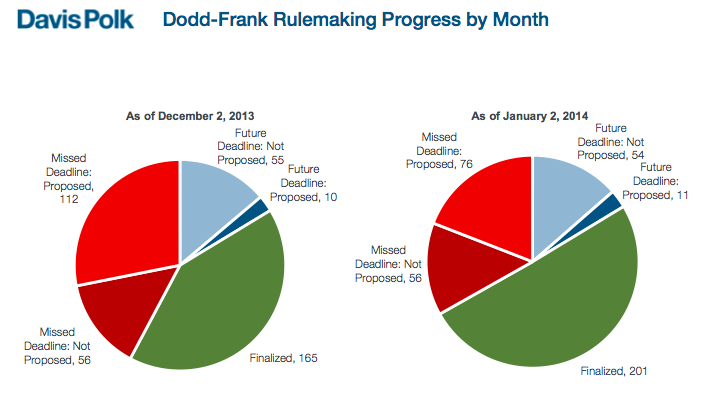Amazon’s expansion plans of $2bn into its e-commerce business in India has faced some major regulatory obstacles with the government in the southern state of Karnataka, where its local operations are headquartered. The company is accused of violating India’s FDI (Foreign Direct Investment) regulations by trying to make a “backdoor entry” into India’s retail business. Karnataka tax authorities have stopped Amazon from selling products from its warehouse by cancelling licenses of third-party merchants storing their products in Amazon’s warehouse near Bangalore.
Amazon Faces Tax Hurdle in India
Court Finds CFIUS Violated Ralls Corporation’s Due Process Rights
On July 15, 2014, the United States Court of Appeals for the District of Columbia remanded Ralls Corporation’s (Ralls) precedent-setting case against the Committee on Foreign Investment in the United States (CFIUS or the committee) and President Obama to district court for the enforcement of Ralls’s right to due process.1 Ralls had argued,inter alia, that CFIUS and the president had unconstitutionally deprived it of its right to property by forcing it to divest that property for national security reasons. The court found that the president had not provided process sufficient to satisfy the Fifth Amendment, and that Ralls was entitled to (a) notice of the official action, (b) review of the unclassified portions of the evidence relied upon by the president in his decision and (c) the right to respond to that evidence. Separately, the court found that the district court also had incorrectly dismissed a number of Ralls’ other claims against CFIUS as moot, and remanded those additional claims for a hearing on the merits. The court’s decision may add a new layer of uncertainty to CFIUS processes, impact both applicants’ rights and committee procedures, and increase the number of tactical decisions involved in preparing for a CFIUS review.
New York Seeks Temporary Restraining Order Against Lyft
In the Uber v. Lyft competition, it seems like Lyft has experienced a serious setback in New York when it tried to launch its services in the Big Apple last week. New York Attorney General Eric Schneiderman and Benjamin Lawsky, Superintendent of Financial Services, filed for a temporary restraining order (“TRO”) to stop Lyft from launching its ride-sharing service.
An Executive Summary and Overview of the EB-5 Program
U.S. Citizenship and Immigration Services (USCIS) administers the Immigrant Investor Program, also known as “EB-5,” created by Congress in 1990 to stimulate the U.S. economy through job creation and capital investment by foreign investors. Under a pilot immigration program first enacted in 1992 and regularly reauthorized since, Congress has allocated 10,000 EB-5 visas for investors designated by USCIS based on proposals for promoting economic growth. Of the 10,000 visas available annually for immigrant investors, 3,000 are reserved for investments in Targeted Employment Areas and another 3,000 are set aside for investment through the Regional Center Program.
The Commercial Drone Phenomenon
Commercial drones are quickly becoming a reality. Medical companies, energy companies, retail stores and many others have petitioned the Federal Aviation Administration (“FAA”) to lift the ban on flying drones, known as unmanned aerial systems (“UAS”), for commercial use. The following companies have made recent headlines for their plans to use commercial drones.
Rise in Global Mergers
Firm Advice: Volcker Rule: Observations on Interagency FAQs, OCC Interim Examination Guidelines
More than six months after the release of final Volcker Rule regulations, banking organizations continue to grapple with a long list of interpretive questions and an opaque process for seeking clarity from the Volcker agencies. Regulatory silence broke for a brief moment this past week in the form of a short interagency FAQ and, from the OCC, interim examination guidelines for assessing banking entities’ progress toward Volcker Rule compliance during the conformance period.
Read the full article here.
Top 10 Privacy Considerations for Digital Marketing Campaigns
In today’s competitive marketplace, companies are relying heavily on innovative and edgy digital marketing campaigns to promote their products and services that often include the submission of user-generated content, viral marketing, the brand’s website, a mobile application and other social media and social networking elements. However, the tech-savvy marketing professionals that are entrusted to implement these programs are often unaware of the complex legal overlay of the digital world and the potential significant financial repercussions for their company’s failure to comply with applicable privacy laws. Failure to understand and follow these legal requirements can potentially lead to expensive litigation or government enforcement actions and negative publicity that can harm a brand. Further, the advancement of technology allows for messaging to be behaviorally targeted, which may not be well received and might be deemed creepy by consumers, even if such profiling and targeting is currently legal in the U.S. In working closely with our clients from concept through execution of a digital marketing campaign, these are the ”top 10” privacy questions that marketers and their lawyers should be asking before launching a digital marketing campaign that collects information from consumers.
See the full article here.
Credit Suisse Pleads Guilty to DOJ Charge of Conspiracy to Aid Tax Evasion; FRB and NYDFS Take Related Actions
As widely reported in the financial press, Credit Suisse AG (“Credit Suisse”), a large Swiss bank that maintains a branch and other offices in the United States pleaded guilty to the felony of conspiracy to aid tax evasion by U.S. taxpayers and agreed to pay an aggregate penalty of approximately $2.6 billion. Credit Suisse’s plea and penalty payment settled a three-year investigation by the U.S. Department of Justice (the “DOJ”). Credit Suisse was the first bank of its size to plead guilty to a crime in the U.S. in more than a decade. In prior cases, in part to avoid significant collateral consequences from a bank’s criminal conviction to employees, shareholders, others not personally involved in the crime or to avoid harm to the U.S. economy, the DOJ had often accepted a guilty plea from a subsidiary of the applicable bank and a deferred prosecution agreement from the bank itself.
